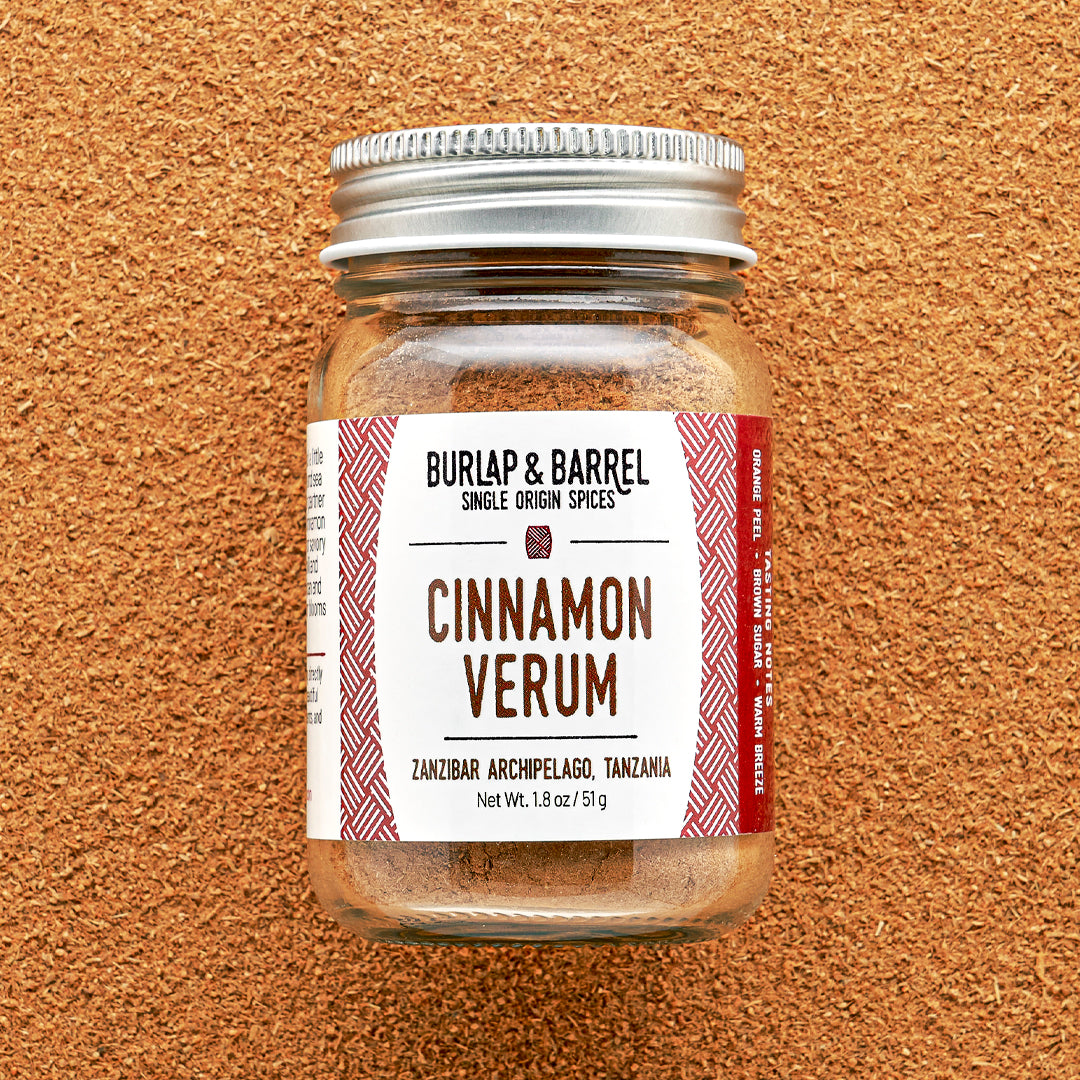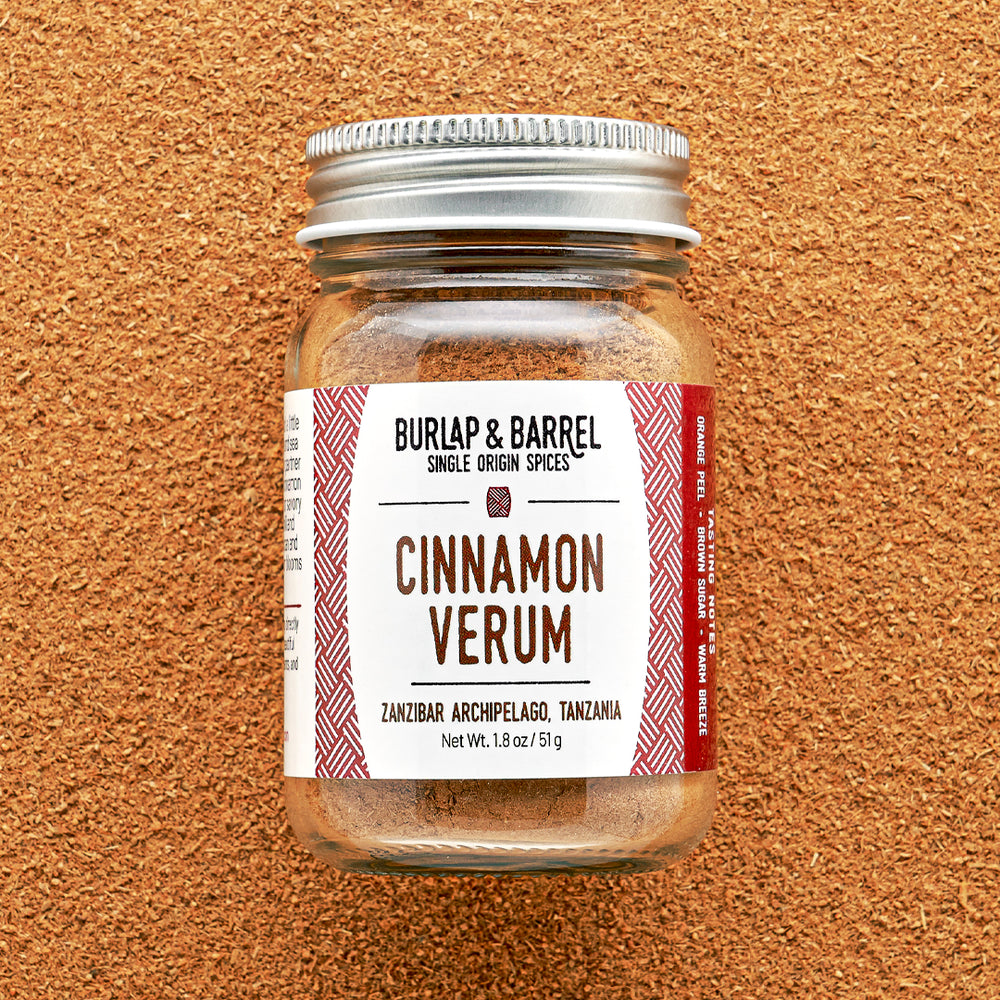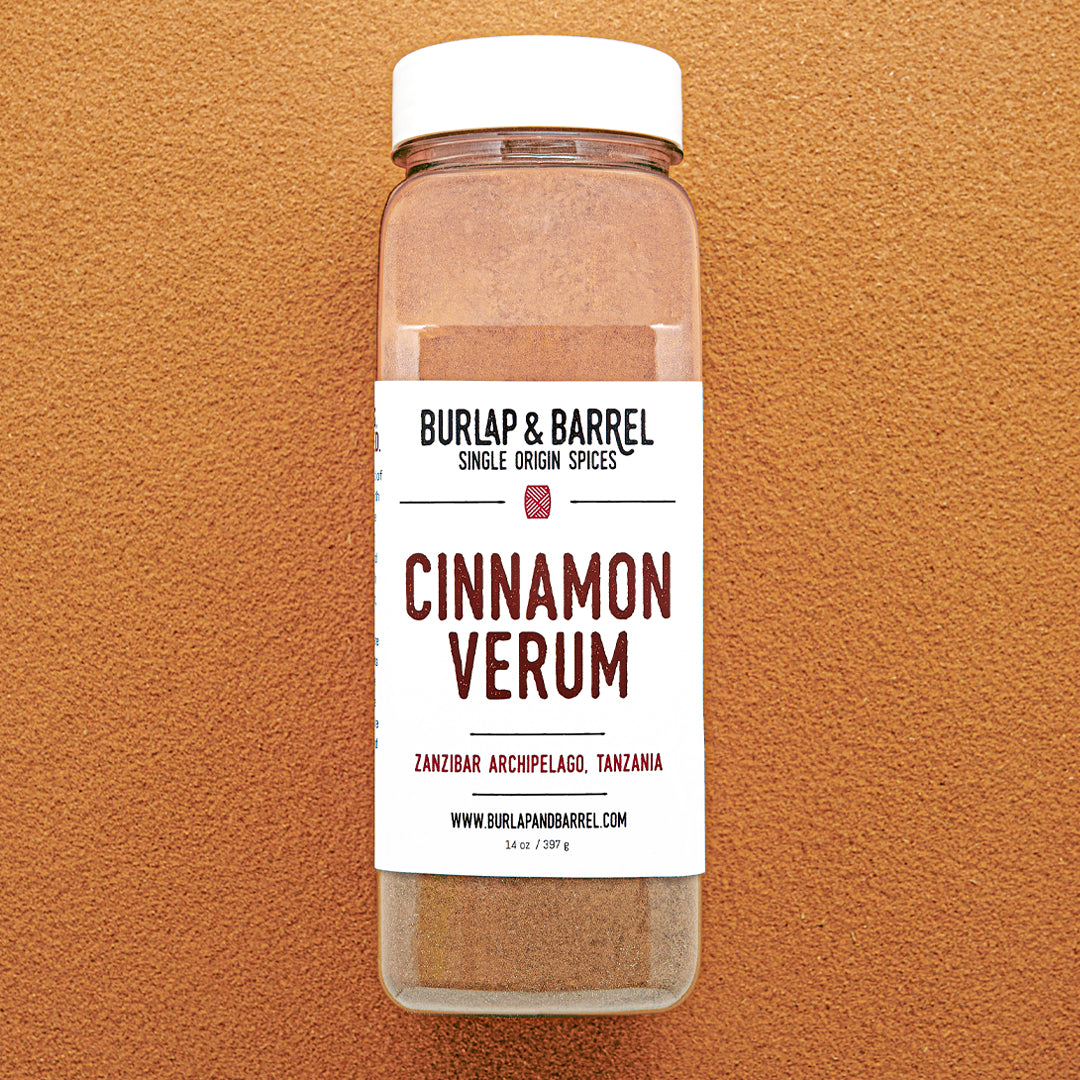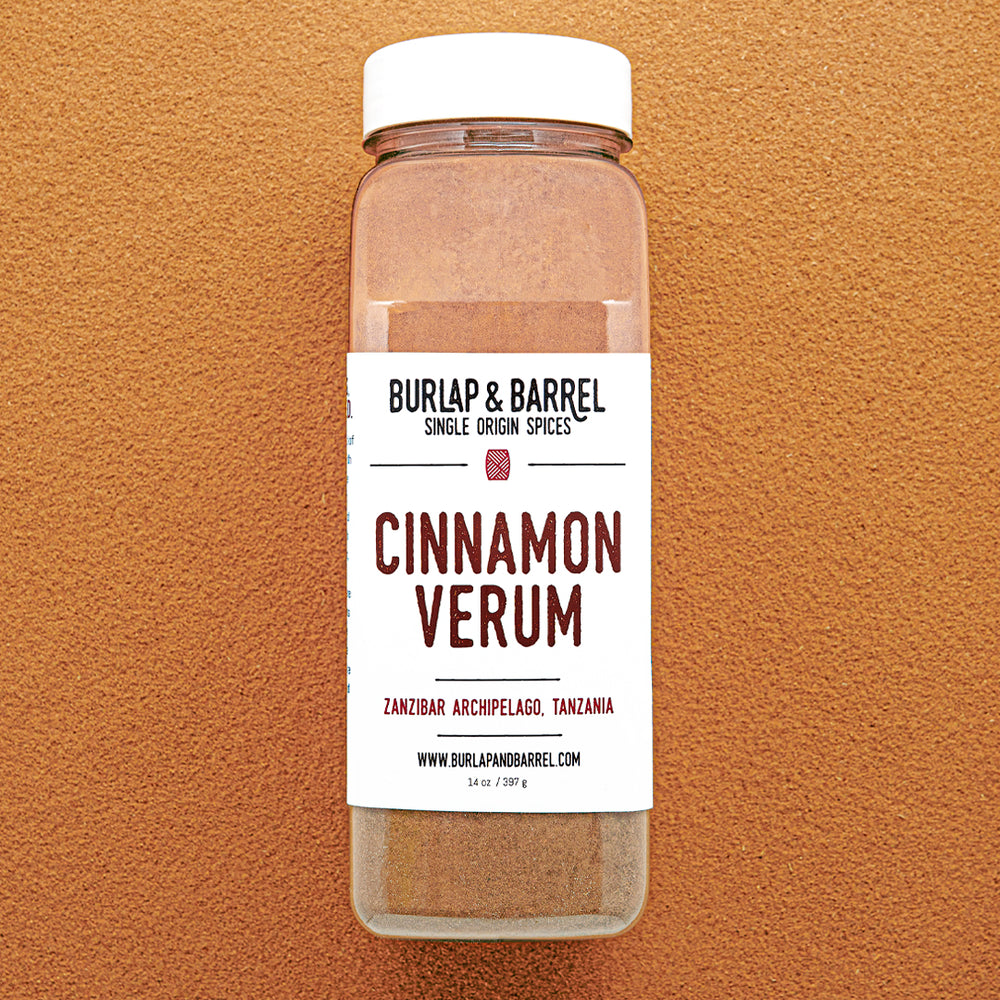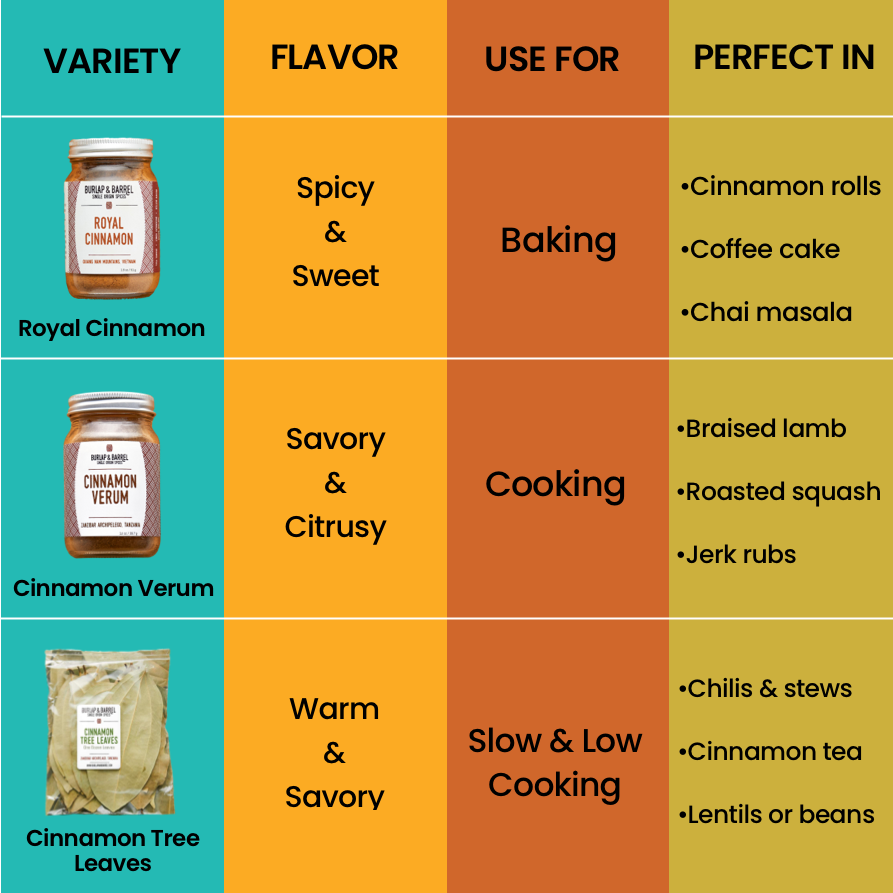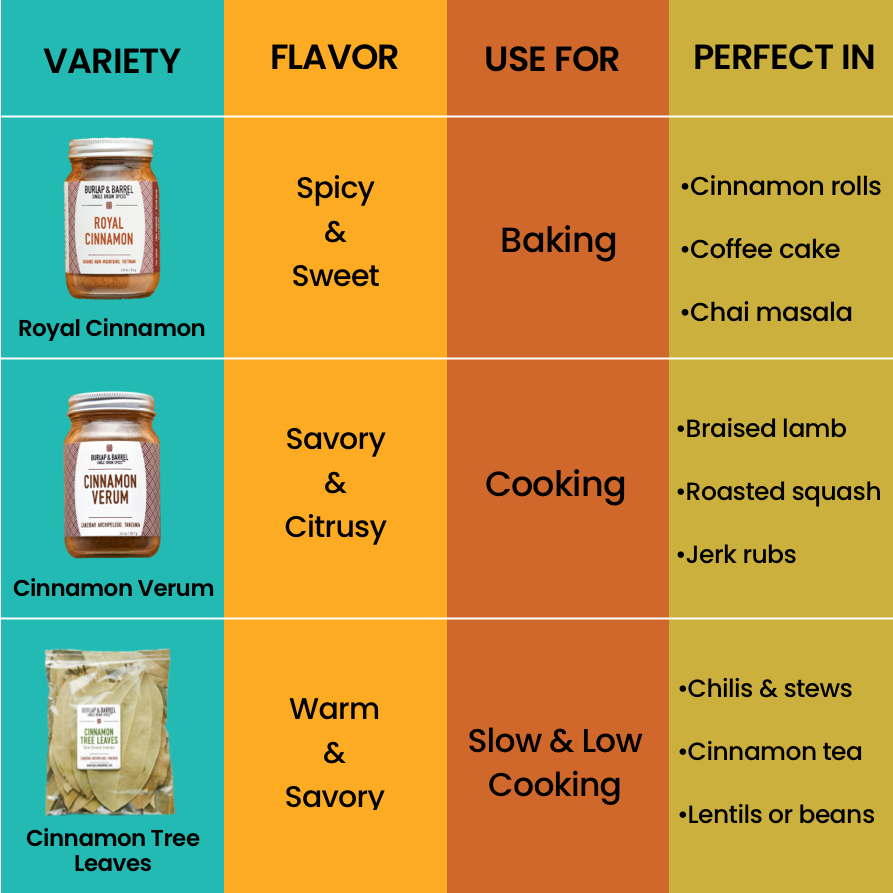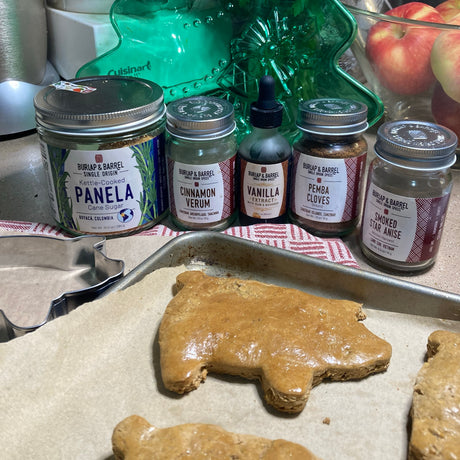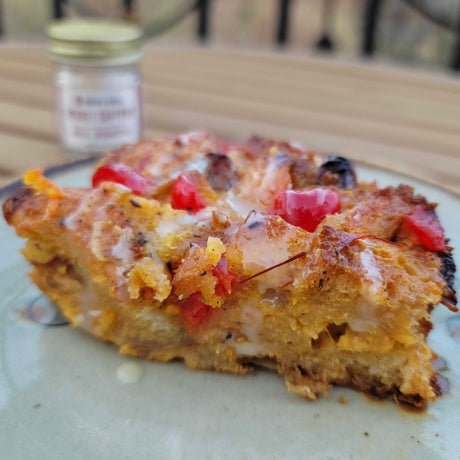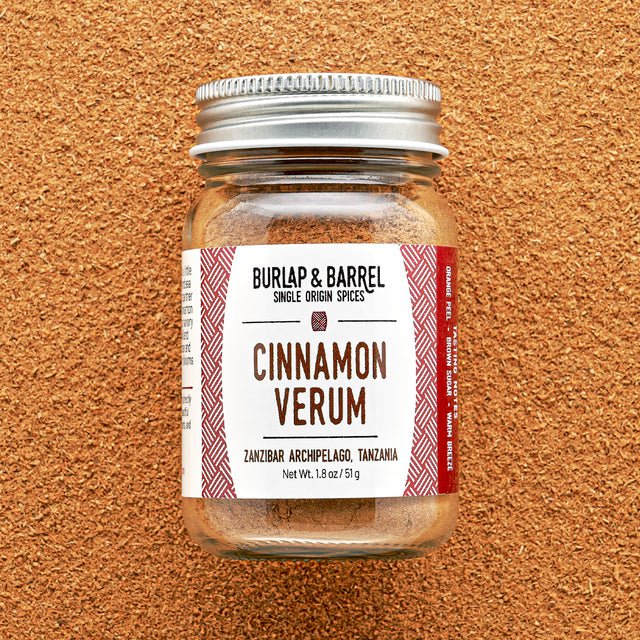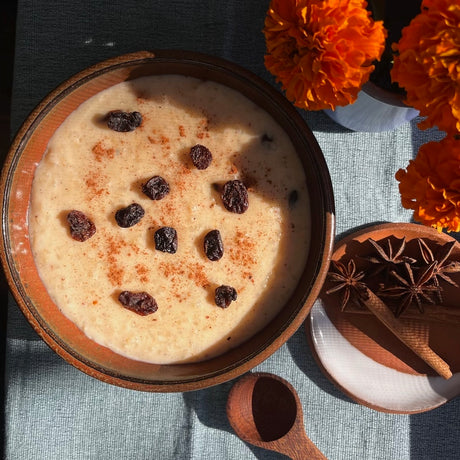
Cinnamon Verum
Subtle, citrusy Ceylon cinnamon aka "true cinnamon," ideal for savory dishes.
Cinnamon Verum - 1.8 oz glass jar is backordered and will ship as soon as it is back in stock.
Why Burlap & Barrel?
Single origin spices sourced directly from small farms
Over 12,000 5-star reviews
Guaranteed to wow you or we'll replace
Our Cinnamon Verum (aka Ceylon cinnamon or "true" cinnamon) is complex, herbal and a little savory, with notes of pine, citrus peel and sea salt. It comes from Zanzibar, where our partner farmers harvest the inner bark of the cinnamon tree, then dry and grind it. It's perfect for savory dishes like tomato sauces, stews, chili and barbecue rubs. It's often used in Mexican and Southeast Asian cooking, and the flavor blooms beautifully when it's heated!
If you're looking for a more familiar but extra-sweet and spicy cinnamon, you might like our Royal Cinnamon as well.
We regularly test our cinnamon for lead in an internationally accredited food safety testing lab, and it is always significantly below the lead limits of 1 ppm. Please contact us for more details on our testing procedures for cinnamon and other spices.
Highlights
Ingredients
True Cinnamon Bark (Cinnamomum verum)
Cooking tips
- Add to braises or sauces that need a little sweetness
- Sprinkle over yogurt and oatmeal, and add to smoothies
- Stir into your favorite coffee, tea or hot chocolate
- Adorn the top of baked goods and pastries
Recipes
Sourcing

Our cinnamon is the inner bark of the Cinnamomum verum, tree also known as true cinnamon or Ceylon cinnamon.
It is grown by a cooperative of smallholder farmers on the Zanzibar islands off the east coast of Tanzania in the Indian Ocean, many of whom have been cultivating cinnamon and other spices (including our cloves, nutmeg and black pepper) for generations.
It grows on the steep hillsides rising above the beach, where it thrives in the hot sun, salty breeze and sandy soil, a terroir that contributes to a subtle, smooth flavor without any bitterness. The cinnamon is hand-cut and sun-dried to order throughout the year to guarantee the freshest and most intense flavor.
Meet the Farmer: Bakari Omar is pictured holding a branch of a cinnamon tree that he just cut. The next step is to shave off the bark, some of which will be ground into powder, and some of which will be made into shavings.

